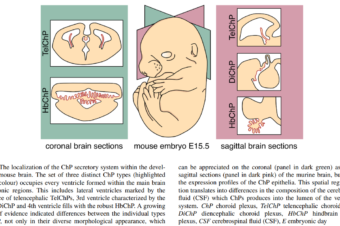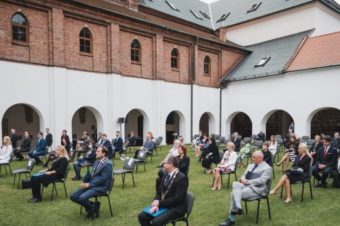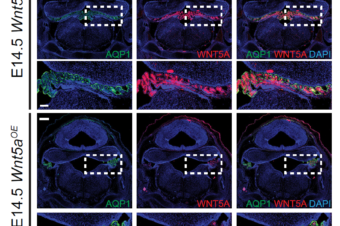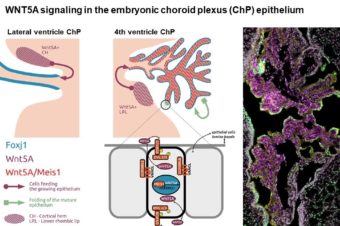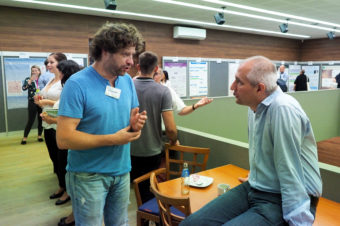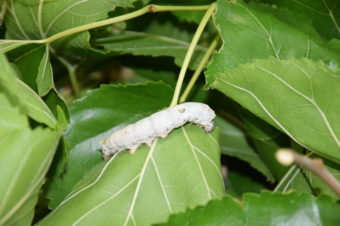
Laboratories of Dr. Konstantinos Tripsianes (CEITEC MU) and Prof. Vítězslav Bryja (Faculty of Science MU) are looking for new colleagues:
(i) Research technician
- workload: 40 hours per week
- work tasks: a) general molecular biology tasks: DNA and protein analysis, transformation, DNA extraction, cloning, PCR, b) general cell culture tasks: mammalian and insect cell culture, transfection and transduction, c) protein expression: bacterial, insect and mammalian systems, d) protein purification: AKTA-based purification methods (affinity, ion exchange, size exclusion, etc.), e) other tasks: preparation of buffers, SDS-PAGE, western blotting, protein quantification
The list of experimental tasks is indicative – the proficiency in the methods is an advantage but the person will be trained by the lab members.
- proficient communication in written and spoken English is needed
(ii) Prospective PhD students
Candidate profile:
- interest in cell and cancer biology
- high motivation and enthusiasm
- familiar with molecular and cell biology methods
- English communication skills (both oral and written)
See the project backgrounds below.
(iii) Postdocs
Candidate profile:
- completed doctoral degree in the field of molecular or cell biology, animal physiology, developmental biology, embryology, etc.
- hands-on experience with experimental techniques such as protein purification, proteomic assays, Crispr-Cas9 editing
- must be highly organized and precise both in regards to performing of laboratory experiments and presenting of data
See the project backgrounds below.
Start dates upon agreement.
Applied methods:
molecular and cell biology, RNA sequencing, proteomic analyses, biochemistry, biophysics, structural biology, NMR, X-ray, SAXS, MS, CRISPR-Cas9
Information about the labs:
Bryja lab: https://www.sci.muni.cz/ofiz/en/bryja/
Tripsianes lab: https://www.ceitec.eu/protein-dna-interactions/rg111
Contact:
For more information, please contact Prof. Bryja (bryja@sci.muni.cz) by 15.05.2023. University Campus Bohunice, Building D36, room 112
Projects background:
1) Molecular and functional analysis of casein kinase 1 biology
The aim of this project is to fill several major gaps in our understanding of casein kinase 1 (CK1) mediated cellular functions. CK1 acts as a component of several developmental pathways such as Wnt, Hedgehog or Yap/Taz that are important drivers of tumorigenesis.
We want to understand how CK1 gets activated and mediates the Wnt signalling pathway, a key signalling machinery dependent on CK1. Further, we work on identification of unique protein targets of individual CK1 isoforms in developmental signalling pathways, and analyse the biological consequences of the selective inhibition of CK1 isoforms in the context of chronic lymphocytic leukemia (CLL), a disease with the proven sensitivity to CK1 inhibition.
Applied techniques: molecular and cell biology, structural biology, RNA sequencing, proteomic analyses
Selected publications:
-
Discovery of Potent and Exquisitely Selective Inhibitors of Kinase CK1 with Tunable Isoform Selectivity, Angew Chem Int Ed Engl. 2023 Jan 10;e202217532.
-
Role of casein kinase 1 in the amoeboid migration of B-cell leukemic and lymphoma cells: A quantitative live imaging in the confined environment, Front Cell Dev Biol. 2022 Dec 6;10:911966.
-
Targeting Casein Kinase 1 (CK1) in Hematological Cancers, Int J Mol Sci. 2020 Nov 27;21(23):9026.
2) Understanding Dishevelled function in Wnt signalling
The Dishevelled (DVL) protein provides a central hub for Wnt-signaling pathways. Up until now, experimental approaches to describe DVL functions have been reductionist, analyzing the DVL structured domains in isolation. Yet, two thirds of the DVL molecule are disordered, rich in S/T residues, and highly conserved in metazoan. Our data-driven hypothesis is that the conformational plasticity of DVL underlies its biological functions.
We take a holistic approach and provide new insights into the mechanism by which structured domains, disordered regions, interaction motifs, and phosphorylation of DVL function synergistically to control Wnt signaling. We develop new integrated models of structure, phospho-regulation, and phase separation and test the validity of DVL functional hypotheses in living cells.
Other branch of this project is focused on the biochemistry of the purified full length Dishevelled 3 (DVL3) and addresses the mechanisms that control interaction of DVL3 with microtubules, lipid membranes and what are the mechanisms that regulate liquidliquid phase separation (LLPS) features of DVL. Better understanding of these secrets of DVL biology will provide theoretical background for the development of targeted inhibition of the Wnt pathway.
Applied techniques: biochemistry, molecular biology, biophysics, structural biology, NMR, X-ray, SAXS, MS, CRISPR-Cas9.
Selected publications:
-
Binding of DEP domain to phospholipid membranes: More than just electrostatic, Biochim Biophys Acta Biomembr. 2022 Oct 1;1864(10):183983.
-
Roles of individual human Dishevelled paralogs in the Wnt signalling pathways, Cell Signal. 2021 Sep;85:110058.
-
Phosphorylation-induced changes in the PDZ domain of Dishevelled 3, Sci Rep. 2021 Jan 15;11(1):1484.
-
Comparative phosphorylation map of Dishevelled 3 links phospho-signatures to biological outputs, Cell Commun Signal. 2019 Dec 23;17(1):170.
-
The N-Terminal Part of the Dishevelled DEP Domain Is Required for Wnt/β-Catenin Signaling in Mammalian Cells, Mol Cell Biol. 2017 Aug 28;37(18):e00145-17.
